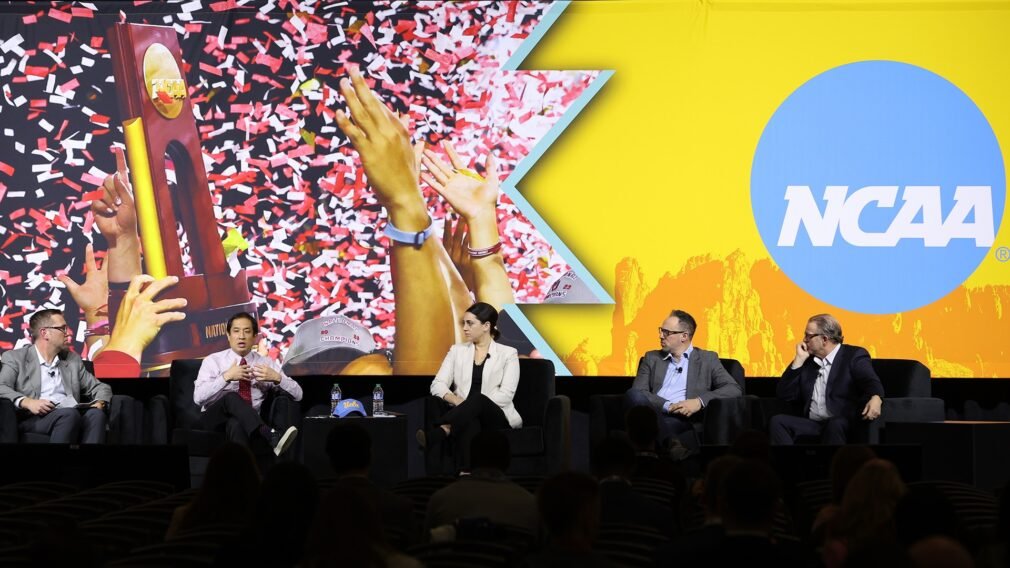NCAA Warns of ‘Threat’ as Robinhood Launches College Football Prediction Markets
The NCAA has voiced “deep concern” over the launch of college football trading on the financial platform Robinhood, a development that intensifies the growing conflict between traditional sports governing bodies and the emerging world of federally regulated prediction markets. The core of the issue is a fundamental disagreement over who should regulate these new wagering platforms, with the NCAA arguing that the current federal oversight is insufficient to protect the integrity of its competitions.

A New Frontier for College Football Wagering
Robinhood announced this week that it would offer markets on the outcomes of all NFL games and every college football game involving Power 4 conference teams. The platform, which is operating in partnership with the financial exchange Kalshi, immediately opened markets for trading, including on the winner of Saturday’s Iowa State-Kansas State game and the Heisman Trophy.
This offering is distinct from traditional sports betting. Robinhood and Kalshi operate under the jurisdiction of the federal Commodity Futures Trading Commission (CFTC), not the state-by-state gaming regulators that oversee sportsbooks like DraftKings and FanDuel. This allows them to offer their products nationwide, including in states where sports betting is not yet legal.
The NCAA’s Integrity and Safety Concerns
As reported by ESPN’s David Purdum, it is this lack of state-level oversight that has drawn the sharp rebuke of the NCAA. The organization believes that allowing wagers on its events outside the established sports betting regulatory framework creates an unacceptable risk.
The NCAA believes companies offering markets on college athletics outside of state regulatory bodies “pose a threat to competition integrity and student-athlete safety,” according to a statement from Tim Buckley, a senior vice president for the organization. “We will continue to analyze developments of this market and work with industry leaders to help ensure guardrails and regulations to protect NCAA competition, student-athletes, coaches and officials,” Buckley said.
Robinhood Defends Its Regulatory Framework
Robinhood disputes the NCAA’s assertion that its platform lacks the necessary safeguards. The company maintains that the federal regulations under which it operates are robust and provide sufficient protection for both consumers and the integrity of the games.
“Federal regulations provide important customer protections and market integrity safeguards, and we do not believe that these event contracts threaten competition integrity or student-athlete safety,” Robinhood vice president JB Mackenzie told ESPN.
The dispute between the NCAA and Robinhood is not happening in isolation. It reflects a broader shift in the U.S. betting market, where the rise of prediction markets is forcing major players to adapt.
Both DraftKings and FanDuel, the two leading U.S. sportsbooks, are now positioning themselves to enter the sector. This week, FanDuel announced a partnership with CME Group, a major derivatives marketplace, to develop its own event-based contracts.
Recommended
